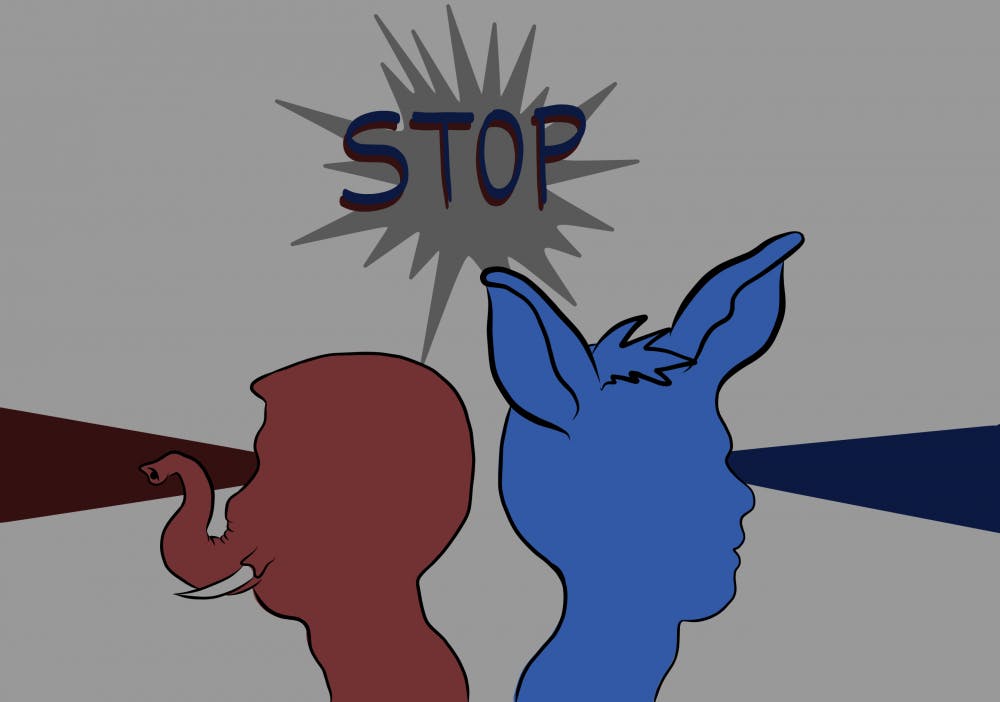I need new sneakers. While this may seem like a simple problem for the average college student, this need has put me on a strange spiritual journey.
I have spent days on fashion blogs. I have saved and screenshotted just about every known picture of Aziz Ansari wearing sneakers. Hell, I even joined Pinterest. All of this time wasted eventually led to the realization that I am actually a 65-year-old man trapped inside the body of a 21-year-old, so I inevitably settled upon New Balance.
But just as I was calculating how many meals I would have to skip to afford both tuition payments and my new shoes, New Balance went public with its support of Donald Trump, which then led to public outcry and the burning of many shoes.
I must admit that at first I found these videos oddly amusing, but then they began to bring up a question I’ve had since I started following politics: As we become more plugged into the political scene, do we close out certain parts of the world?
The more I think about it, the more real this issue becomes for me. We have reached a point where it’s no longer enough to have our own beliefs; we now wear them on our sleeves, on our shoes, on our hats.
Not only that, but we’ve begun to wear our political beliefs like a suit of armor. We use them to block out anything that goes against our own views. And at this point, we no longer listen to opposition in an attempt to learn or understand — we listen to respond.
Nowhere is this made clearer than on Facebook. We follow people and pages based on their political beliefs; we curate our newsfeeds so they echo our opinions and minimize the opinions of others. We share and consume these snapshot political posts, not so we can better communicate our stances, but so we can simply regurgitate facts and figures that further cement us in our ways.
The problem goes much further than just social media and clothing, people are also planning their futures around their politics and choosing communities based on ideology.
"Liberals are moving to places the have liberal reputations, while conservatives are avoiding such areas for more conservative locales," Matthew Dempsey, ASU political science Ph.D candidate and graduate associate, said in an email.
While this may seem like a rather innocuous problem on the surface, the implications of continuing down this path could be felt for generations to come. "This could make compromise, or at the very least understanding/empathy, more difficult. Also, America will potentially seem more partisan than it does now," he said in an email.
The solution to this problem is not simple, because in no way can we ignore politics. Being politically aware is part of our civic duty, and it truly is one of the best ways to combat the maelstrom of terribleness that is the world. But in our pursuit of political enlightenment, we must not lose sight of the fact that politics at its core is about people. People who are afraid of how the world is turning out and people who feel ignored, maligned or forgotten.
So instead of simply shouting our beliefs at others in some misguided attempt to be the loudest, we must make a more concerted effort to listen to one another and have open, honest conversations about our current situation. This idea isn’t new or original, but it may be the healthiest way for us to move forward, empathize with others and begin to heal the rift so many people feel in the world.
In my first attempt at spreading the change I want to see in the world, I would like to leave you with this: In a world dominated by Donald Trump, partisan barriers and violence, there will always be Mr. Rogers to help us remember that the world is never completely devoid of kindness, understanding and hope.
Reach the columnist at agrafil@asu.edu or follow @alecgrafil on Twitter.
Editor’s note: The opinions presented in this column are the author’s and do not imply any endorsement from The State Press or its editors.
Want to join the conversation? Send an email to opiniondesk.statepress@gmail.com. Keep letters under 500 words and be sure to include your university affiliation. Anonymity will not be granted.
Like The State Press on Facebook and follow @statepress on Twitter.




